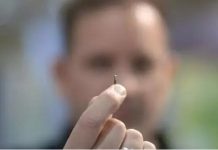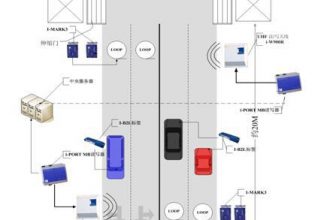
Indonesian Ministry of Justice intends to implant RFID microchips in the ankles of rapists for tracking
[ad_1]
According to related reports, a 14-year-old girl was brutally gang raped on her way home from school and caused public outrage in Indonesia. Some people suggested why not implant microchips for all convicted child rapists? So that the police can know their whereabouts at any time, even these After the criminal was released from prison.
The Indonesian Ministry of Justice and the National Child Protection Committee are pushing for the legalization of this proposal, implanting microchips near the ankles of rapists. As Indonesian officials said, implanting microchips will allow the police to track every move of criminals. This plan is still under evaluation, and its purpose seems to be to appease angry people while reiterating the government’s philosophy of fighting crime.

However, this proposal is suffering setbacks, and the microchip implantation plan is seen as an unrealistic or even impossible fantasy. Seattle biohacker and subcutaneous microchip expert Amal Graafstra said: “This is absolutely an absurd proposal.”
Grafstra calls himself a “dual RFID implanter”. He has a radio frequency identification chip implanted in each of his hands, which allows him to log on to the computer and even start the motorcycle by waving his palm. He also sells self-implantation kits online so that others can also free themselves from passwords or keys. These RF chips are about the size of rice grains and are the most advanced implantable devices on the market today. But they should not be confused with GPS trackers. Grafstra said that the transmission radius of RFID is limited to about 25 cm, and the closer the distance the better.
Grafstra said: “The idea of planning to use these devices as tracking devices originated from Hollywood movies, not reality. In the real world, implanting radio frequency identification chips is meaningless.” Because the signals of these implants are very high. They are easily covered by metal equipment purchased online, not to mention that “ruthless people” can use knives to take them out of the meat directly.
Indonesia plans to integrate microchips with GPS technology. There is no similar product on the market. This may mean burying huge devices in the body, which include batteries and antennas. For ordinary people, it is not unacceptable to implant GPS trackers in their bodies. After all, scientists also wear tags and tracking devices on polar bears or migratory birds. But neither the polar bear nor the migratory bird tracking device has been implanted under the skin because that might prevent the signal from being sent.
These tracking devices are very small, weighing only about 1 gram, and are undergoing limited field testing. The researchers found: “The fact that the device needs to be retrieved is still a disadvantage.” In other words, to understand the specific location of the animal implanted with the chip, you still need to download the data through the physical chip, just like a label.
Indonesia has previously proposed the idea of implanting microchips for special populations. In 2008, a member of Congress proposed to implant a chip for AIDS patients in Papua, the poorest area of the country. The biggest supporter of this plan, doctor and MP John Manansang (John Manansang) advocated that AIDS patients can be tracked like birds and animals. When the infected blood comes in contact with the infected blood, the chip will send a signal. Monitor the spread. This plan failed to become a reality.
Now, even though Indonesian officials have proposed to implant microchips in criminals, similar concepts still seem to be infeasible. The Indonesian government is considering wearing RFID devices for criminals, and this idea may be realized. In the United States, RFID devices are also used to track prisoners in prisons, but they are worn on the ankles rather than implanted in the body. In fact, if Indonesia is willing, it can also choose to track criminals using a device already worn by 200,000 prisoners in the United States, that is, clumsy plastic ankle monitors.
[ad_2]




